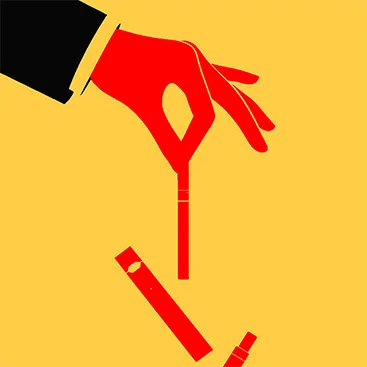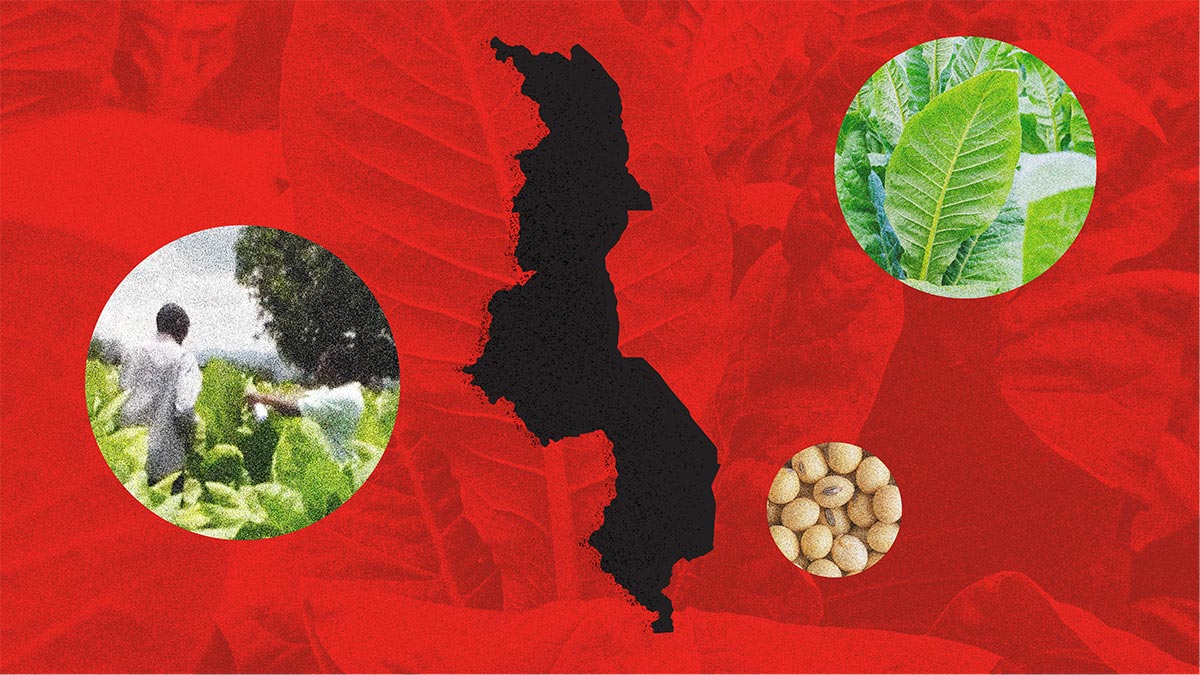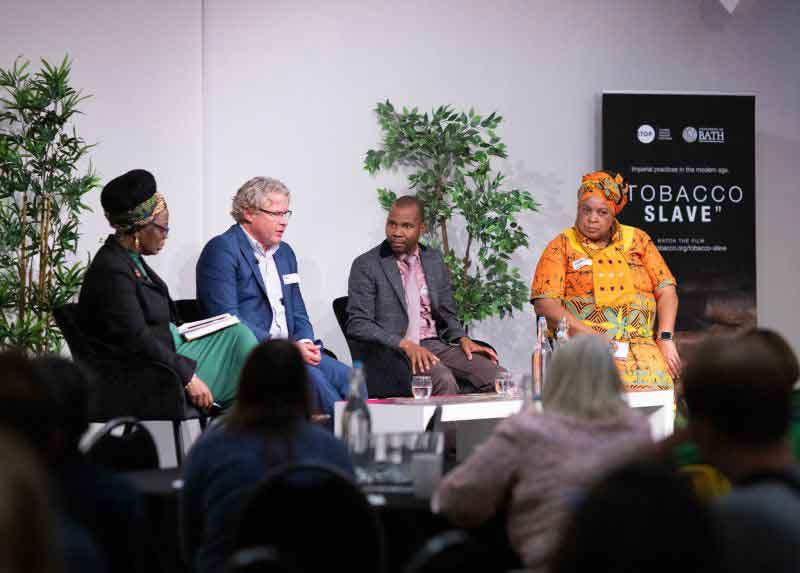- Resources
- News
-
-
Get Email Updates
Sign up for STOP's emails and never miss an update on our latest work and the tobacco industry's activity.
-
Get Funding
Ready to tackle industry interference? You could be eligible for a grant.
-
Share a Tip
Do you have information on tobacco industry misconduct in your country? Let us know.
-
Get Email Updates
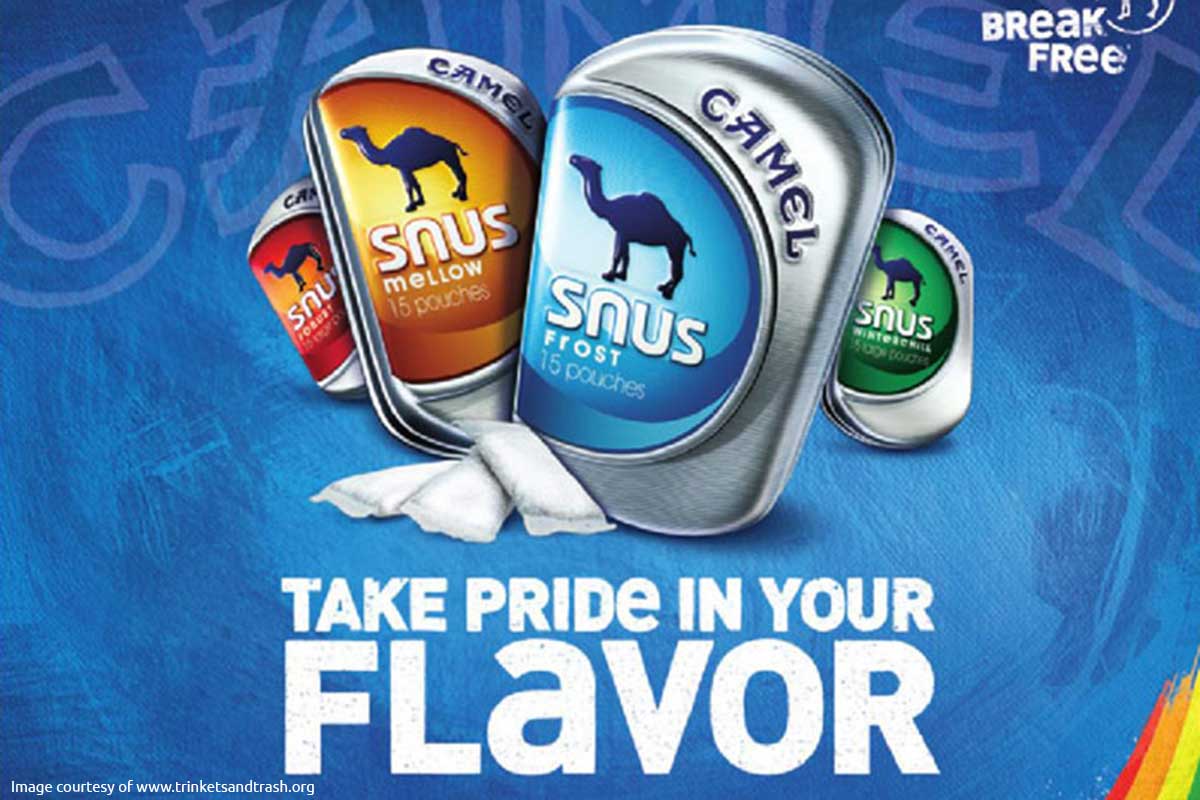
Pride Month is a time to celebrate the progress, honor the achievements and commemorate the struggles of the LGBTQ+ community. Alongside the rallies, parades and advocacy events, messages of empowerment flood the media.
Even from tobacco companies.
This June, tobacco companies including British American Tobacco (BAT) and Japan Tobacco International (JTI) used social media to tweet messages of support for their LGBTQ+ employees and colleagues. On the surface, this all sounds nice. But when you look at the tobacco industry’s predatory marketing to the LGBTQ+ community and the social inequities it perpetuates, it’s easy to see that it is profit—not pride—that matters to the tobacco industry.
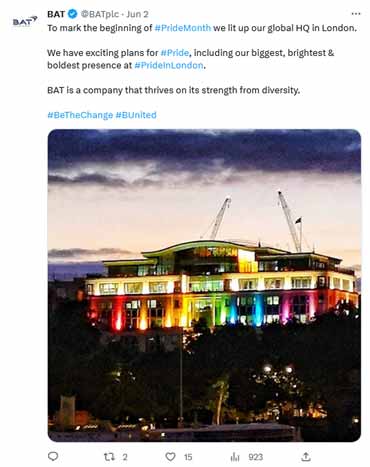
Researchers have noted that in many countries, LGBTQ+ adults are more likely to use tobacco than non-LGBTQ+ adults. As of 2020, about 16% of gay, lesbian and bisexual adults in the U.S. smoked cigarettes, compared to about 12% of heterosexual adults. This disparity appears in younger populations, too. As of 2022, about 21% of gay, lesbian or bisexual high school students and about 20% of transgender high school students used tobacco products, compared to about 14% of straight and cisgender students. This is no coincidence.
The tobacco industry has a history of targeting marginalized people who already face economic and/or health inequities, including Black people in the U.S., women and LGBTQ+ people. Tobacco companies began trying to reach a mass LGBTQ+ audience in the 1980s and ‘90s. In the U.S., Philip Morris was one of the first large corporations to donate to AIDS research, according to the Public Law Center at the Mitchell Hamline School of Law in the U.S. The company also began buying ad space in the popular U.S. magazine, Genre. Philip Morris wasn’t the only tobacco company keen to cash in on the LGBTQ+ market. Many others joined in, such as German cigarette company Reemstma, which featured a gay marriage celebration in an ad for its New West cigarettes.
Unfortunately, the false sense of allyship the industry’s actions may have created got the industry what it appeared to want—more LGBTQ+ smokers.
The tobacco industry’s internal attitudes toward the LGBTQ+ community didn’t always match the positivity of its external messaging. As the Truth Initiative highlights, a mid-1990s marketing plan by R.J. Reynolds to target gay men and homeless people in the U.S. was called “Project SCUM.” A Philip Morris document shows it also saw the LGBTQ+ population simply as a market with plenty of growth potential.
Tobacco companies continued their efforts to hook the LGBTQ+ community on tobacco. In the U.S., Lucky Strike placed PSA-like ads in the program of the 2001 Gay and Lesbian Alliance Against Defamation Media Awards, and in 2011 Camel ads aligned messages of Pride with its flavored snus products. As part of a 2018 focus group in the U.S., interviewees reported having seen tobacco coupons and rebates being handed out at Pride events.
The LGBTQ+ community remains a target for tobacco companies’ new products, too. After the launch of IQOS, Philip Morris International (PMI)’s heated tobacco product, in the U.K., the company sponsored the health section of the Gay Star News and hosted a Pride afterparty which it advertised at IQOS shops in London. In July 2023, the IQOS stores in London will be “transformed” with “colour, balloons, and macaroons.” Philip Morris Limited also plans to host a post-Pride event called “Heat Your Pride,” evoking messaging related to what it calls its “heat-not-burn” tobacco products. Appearing almost as an afterthought, the company notes the event is for “adult smokers only.”
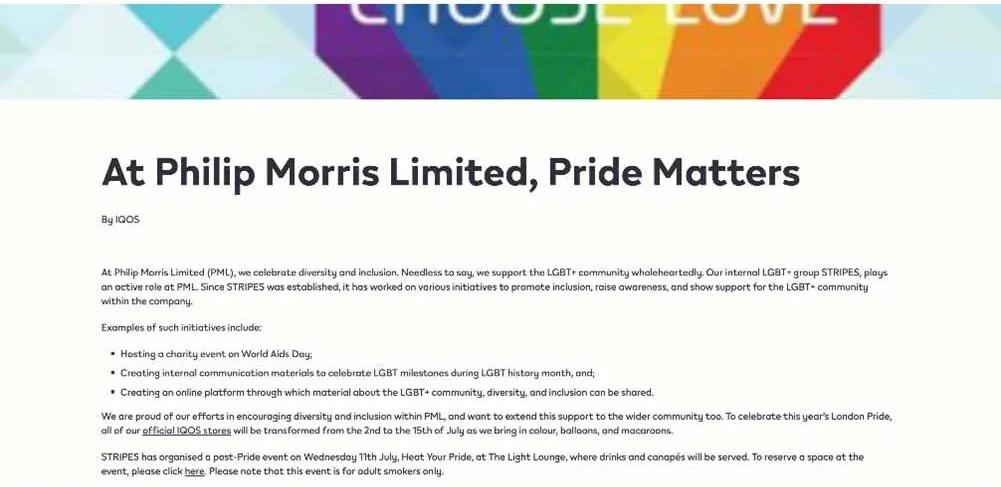
While the industry broadcasts what it publicly supports, it tries to hide what it doesn’t support—such as flavor and menthol bans. The industry has targeted its menthol products at the LGBTQ+ community, just as it targeted them at Black Americans. This is especially concerning, as menthol tobacco is known to appeal to young people, make smoking more palatable and be harder to quit. The result of this targeted marketing? As of 2010, about 36% of LGBTQ+ smokers reported smoking menthols, versus about 29% of straight smokers. When the industry funds lobbyists to fight menthol bans or spreads misinformation about the effects of menthol bans, it is fighting to keep tobacco that appeals to young people accessible and current users hooked, despite the health consequences.
Because of bias and discrimination, LGBTQ+ people in some countries face more barriers to getting what they need to thrive. In places where discrimination is rampant, LGBTQ+ people may earn less money or have more difficulty finding health care they trust or that they can afford. These existing inequities are made even worse when the industry targets LGBTQ+ people with addictive, harmful products that strain finances and harm health.
So LGBTQ+ buyer beware. During Pride month and beyond, tobacco companies will probably adorn their social media accounts with rainbow colors to portray themselves as allies to the LGBTQ+ community. But the reality is that their motives are addiction and profit, not pride.
